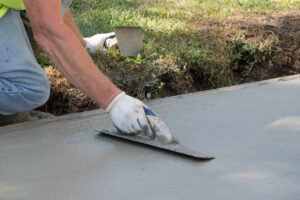Choosing the right fence for your property doesn’t just come down to style. It’s also about functionality, durability, budget, and long-term value. The truth is, not all fence materials are created equal. As a homeowner or business owner, understanding your options can save you from headaches—and extra costs—down the road.
Understand the Purpose of Your Fence
Start with Why
Before diving into aesthetics or pricing, ask yourself why you need a fence:
- Are you trying to keep pets in?
- Do you need more privacy?
- Is it about enhancing security?
- Are you simply trying to boost curb appeal?
Each of these goals might require different fence materials. For example, iron or aluminum may be better for security, while wood might work well for privacy and style.
Compare the Most Common Fence Materials
Wood: Classic and Customizable
Wood fences remain a popular option for their natural look and flexibility in design. They can be stained or painted to match your home and offer excellent privacy. However, they require regular maintenance and are susceptible to rot, insects, and weather damage.
Iron and Aluminum: Strong and Secure
For maximum durability and security, iron is tough to beat. It resists impacts and is nearly impossible to break through. Aluminum offers many of the same benefits but is lighter and rust-resistant. Both materials can be powder-coated to improve appearance and increase longevity.
Chain Link: Affordable and Functional
Chain link is often the go-to for commercial properties and large areas where function outweighs form. While it may not offer much in the way of privacy or aesthetics, it’s cost-effective, durable, and easy to install.
Consider Climate and Environmental Factors
Not All Fence Materials Handle Weather Equally
Your local climate plays a big role in material performance. In humid or rainy regions, aluminum holds up better than wood. If you live near the coast, you’ll need materials that resist corrosion, like powder-coated metal. Extreme heat? Choose materials that won’t warp or crack.
Don’t Forget About Maintenance
Time and Effort Matter
Some fence materials require regular care, like painting or sealing. Others, like iron or aluminum, need little more than an occasional rinse. Be honest about how much time and energy you want to invest in upkeep.
Factor in Budget—But Think Long-Term
Upfront vs. Lifetime Cost
Wood may be affordable upfront, but the ongoing maintenance can add up. Aluminum and iron may be pricier to install, but they’ll save you money in the long run through durability and lower upkeep.
A professional fencing contractor can help you weigh these options and match your material choice with your budget and goals.
Ask a Pro for Guidance
Trust the Experts
A qualified fencing contractor can evaluate your property, discuss your goals, and help you select the best fence materials for your specific situation. They’ll also ensure proper installation—which is just as important as material choice when it comes to long-term performance.
Make an Informed Decision
Choosing the right fence materials isn’t about finding a one-size-fits-all solution. It’s about matching your priorities—security, privacy, aesthetics, cost, and maintenance—with the right combination of features.
At Aqua Blu Services, we guide you through every step of the process. From material selection to expert installation, our team of experienced fencing contractors ensures your investment delivers beauty and performance for years to come.Let us help you find the perfect fence for your home or business. Contact Aqua Blu Services today to get started!


